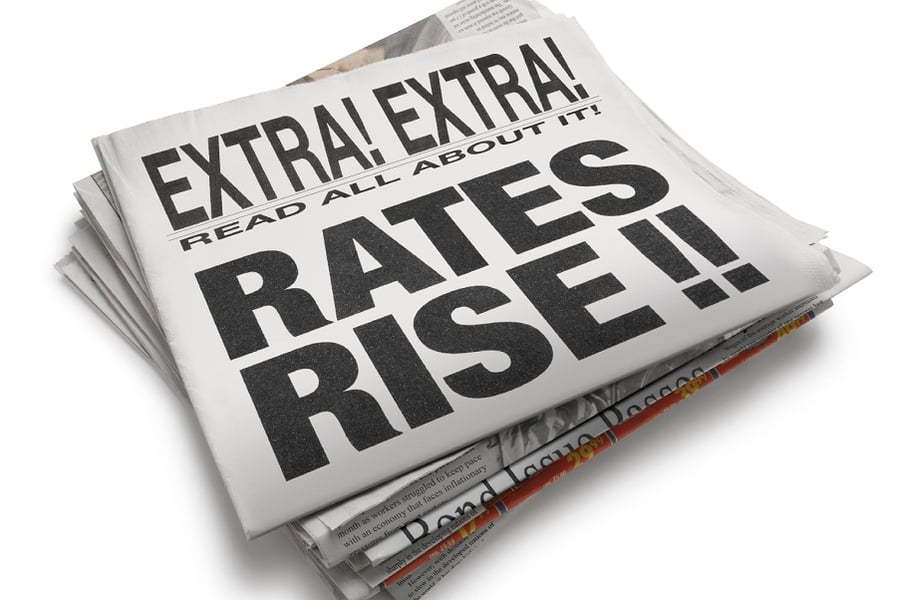We're all acutely aware of history's tendency to repeat itself, a reality that is especially true in the world of finance and investments where investor sentiment swings on a pendulum between fear and greed. Investors swinging on that pendulum are understandably concerned with an apparent bubble that has been forming around financial assets in the U.S. — one that reminds them of the 2007 bubble that nearly destroyed the entire global financial system.
With that near-death experience in the rear view mirror, it's easy to see why many advisers and investors have been concerned as asset values — from stocks to bonds to real estate — have soared.
Here is the vexing question they face today: Are these values sustainable or is a collapse imminent in the pricing of financial assets? If it's the former, morphing into something similar to the decades-long low-yield environment of Japan, then it's best to invest now and begin earning a return on capital. If the latter is true, and we are heading for a 2008 style collapse, then remaining in cash would be advisable.
(More: How ETFs can help mitigate the impact of market bubbles)
If advisers need any help making this decision, I am here to say that 2016 is not 2008. It's not even close.
NOWHERE TO GO
Let's consider why. In the period leading up to the 2008 crisis, financial system leverage reached ridiculously-high levels, with much of it untethered from the Federal Reserve as it ran through investment banking firms — like Bear Stearns and Lehman Brothers, and Morgan Stanley and Goldman Sachs — before coming under Fed supervision. As a result, when prices dipped, these massively leveraged financial firms had nowhere to go and were forced to impose margin calls on their clients. That set the downward spiral of price declines into warp speed, and the market could not recover.
By contrast, today's financial system leverage is far lower, with most of it running through banking companies with access to the Fed's printing press. An out-of-control leverage unwinding is simply not in the cards today. The Fed has largely plugged up that hole.
Another comforting sign is the market's preoccupation with downside risk. Most bubbles burst when unfettered and complacent optimism abound. This clearly has not been the case in this cycle, as nearly every business conversation for about five years has revolved around the question of when rates will rise. Despite historically high financial asset pricing, it seems we have been in a market dominated more by the grip of fear than greed, and today's high asset values exist in spite of that fear. Today's lofty asset values are the result of ultra low interest rates and a world awash with capital seeking yield.
(More: Second-generation passive investing fueling new smart-beta ETFs)
Rates are low because the global economy is frighteningly lethargic. Even the U.S. economy has not reacted as it should to the historic levels of monetary stimulus, with real wages for most Americans below what they were decades ago and the Fed unable to stimulate any broad inflation. Real yield, which in many ways is the byproduct of productivity, is in short supply in the world and the monetary policy aimed at stabilizing and inflating a lethargic economy has added to the supply of capital seeking yield.
RISK THAT RATES WON'T RISE
It is quite possible that this time, the risk to investors is not that rates will rise and destroy the value of their financial assets, but that rates will not rise and investors will not be able to earn a suitable return on their savings. In such an environment, those who can manufacture yield will be rewarded, and those who move quickly to lock in yield will also be gratified.
If this were to play out and the productivity/capital ratio remains out of balance, those investors who essentially bid for stakes in existing cash flow streams will suffer as they find yield increasingly unavailable.
If, as I believe, we are to remain in an environment characterized by low growth, those who acquire solid investments at today's yields will do well and those who sit in cash will not. Yet, I do not believe that investors should be looking at this as a bet.
There are many ways one can invest today and succeed regardless of the direction of interest rates. Investors should seek investments with strong long-term performance qualities, identifying assets or companies that can produce steady and predictable cash flows. When they do, they will find themselves resting much more comfortably on an anchor as the pendulum between fear and greed continues to swing for others.
Ethan Penner is the founder and managing partner of Mosaic Real Estate Investors and is an associated person of MREC Management, an SEC-registered investment adviser.







